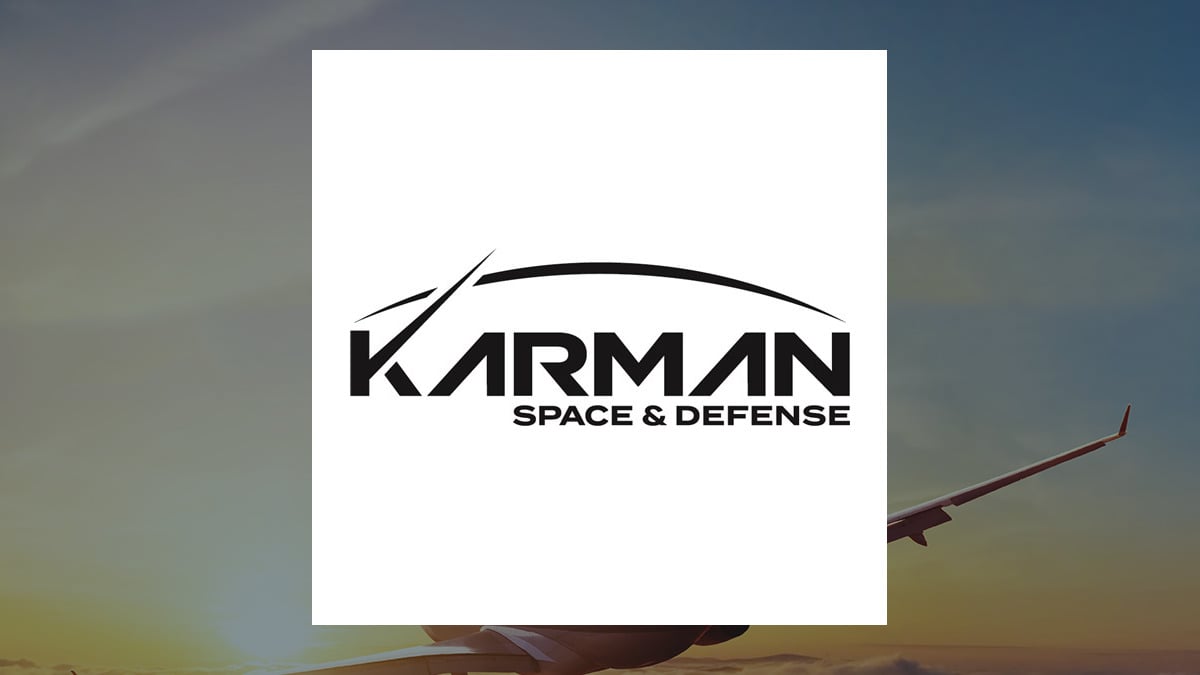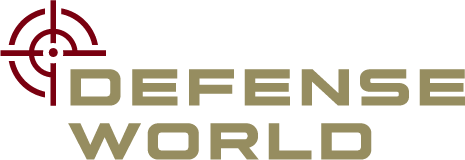Karman (NYSE:KRMN – Get Free Report) and Ducommun (NYSE:DCO – Get Free Report) are both aerospace companies, but which is the superior investment? We will contrast the two businesses based on the strength of their profitability, risk, dividends, valuation, analyst recommendations, earnings and institutional ownership.
Valuation & Earnings
This table compares Karman and Ducommun”s revenue, earnings per share (EPS) and valuation.
| Gross Revenue | Price/Sales Ratio | Net Income | Earnings Per Share | Price/Earnings Ratio | |
| Karman | $345.25 million | 22.66 | $12.70 million | $0.25 | 236.48 |
| Ducommun | $806.22 million | 1.61 | $31.50 million | ($2.34) | -37.03 |
Insider and Institutional Ownership
92.2% of Ducommun shares are owned by institutional investors. 8.9% of Ducommun shares are owned by insiders. Strong institutional ownership is an indication that hedge funds, large money managers and endowments believe a stock is poised for long-term growth.
Analyst Ratings
This is a summary of recent ratings and price targets for Karman and Ducommun, as provided by MarketBeat.
| Sell Ratings | Hold Ratings | Buy Ratings | Strong Buy Ratings | Rating Score | |
| Karman | 0 | 1 | 6 | 2 | 3.11 |
| Ducommun | 1 | 1 | 5 | 0 | 2.57 |
Karman currently has a consensus target price of $76.17, indicating a potential upside of 28.83%. Ducommun has a consensus target price of $97.50, indicating a potential upside of 12.53%. Given Karman’s stronger consensus rating and higher probable upside, equities research analysts plainly believe Karman is more favorable than Ducommun.
Profitability
This table compares Karman and Ducommun’s net margins, return on equity and return on assets.
| Net Margins | Return on Equity | Return on Assets | |
| Karman | 2.65% | 11.11% | 3.97% |
| Ducommun | 5.03% | 7.61% | 4.62% |
Summary
Karman beats Ducommun on 8 of the 14 factors compared between the two stocks.
About Karman
 We specialize in the upfront design, testing, manufacturing, and sale of mission-critical systems for existing and emerging missile and defense, and space programs. Our integrated payload protection, propulsion, and interstage system solutions are deployed across a wide variety of existing and emerging programs supporting important Department of Defense (“DoD”) and space sector initiatives. We estimate that no single program accounted for more than 10% of sales for the nine months ended September 30, 2024 or the twelve months ended December 31, 2023, with revenue from over 100 active programs supporting current production and next-generation space, missile, hypersonic, and defense applications. We believe that our engineering expertise, vertically integrated production capabilities, and track record with critical piece part and subcomponent manufacturing positions us to successfully serve our prime customers who rely on us to deliver technical design and scaled manufacturing for integrated systems that are required to withstand extreme environments and meet stringent performance requirements. Our highly engineered solutions are organized into three key families: Payload Protection and Deployment Systems, Aerodynamic Interstage Systems, and Propulsion Systems: • Payload Protection and Deployment Systems: full design and manufacturing of the top section of a booster, launch vehicle, payload, or missile system • Aerodynamic Interstage Systems: supporting metallic and composite subsystems designed for aerodynamics and interstage separation • Propulsion Systems: offering of integrated solid rocket motors and supporting subsystems, launch systems, and ablative composites Our solutions are deployed across three growing, core end markets: Hypersonics & Strategic Missile Defense, Missile & Integrated Defense Systems, and Space & Launch. We serve a diverse customer base within these end-markets where we maintain long-standing relationships and engineering partnerships. We believe that our differentiated technical design, expertise, intellectual property, and heritage of mission success provides us with a value proposition that would be difficult to replicate by our current and potential future competitors. By utilizing our vertically integrated and concept-to-production capabilities along with a highly targeted acquisition strategy, we have created a business model aimed at creating long-term, sustainable value for our customers, the programs we support, and the warfighter. — Our business approach combines both strong organic growth and our proven buy, build, and integrate acquisition strategy. Karman Space and Defense is defined by four core acquisitions that have been fully integrated into our business to create a synergistic platform with complementary capabilities and robust intellectual property (“IP”). Our formation began with the merger of Aerospace Engineering, LLC (“AEC”) and AMRO Fabricating Corporation (“AMRO”) in October 2020, which allowed us to become one of the largest independently owned suppliers focused on manufacturing complex systems for the space and missile markets. Shortly thereafter, we acquired American Automated Engineering, Inc. (“AAE”) (December 2020), a manufacturer of high-temperature composites, and Systima Technologies (“Systima”) (September 2021), a specialist in design and integration of energetic and mechanical systems into the structural design of mission-critical space and hypersonic systems. Since inception, we have completed three additional, complementary acquisitions focused on further expanding our capability set. Altogether, these acquisitions have: • United complementary capabilities that are critical to Karman’s “concept-to- production capabilities” offering to blue chip missile and space primes • Provided a storied heritage of trusted, mission success encompassing 40+ years, which we deem vital to success in our industry • Created a platform and strategic basis to continue to seek accretive, complementary acquisitions — Today, Karman operates approximately 730,000 square feet of design, engineering, and manufacturing space, supporting a single Karman go-to-market strategy. We continue to evaluate opportunities to support anticipated growth and have recently invested to outfit a new 30,000 square foot facility in Decatur, AL to primarily service a new customer. We currently operate as a Delaware limited liability company under the name TCFIII Spaceco Holdings LLC (d/b/a Karman Space and Defense) (otherwise referred to herein as “Karman LLC”), which is a holding company that holds all of the equity interests of our operating subsidiaries. Karman LLC was formed August 20, 2020. Prior to the effectiveness of the registration statement of which this prospectus forms a part, Karman LLC will convert to a Delaware corporation and we will change our name to Karman Holdings Inc. Our principal offices are located at 5351 Argosy Ave, Huntington Beach, CA.
We specialize in the upfront design, testing, manufacturing, and sale of mission-critical systems for existing and emerging missile and defense, and space programs. Our integrated payload protection, propulsion, and interstage system solutions are deployed across a wide variety of existing and emerging programs supporting important Department of Defense (“DoD”) and space sector initiatives. We estimate that no single program accounted for more than 10% of sales for the nine months ended September 30, 2024 or the twelve months ended December 31, 2023, with revenue from over 100 active programs supporting current production and next-generation space, missile, hypersonic, and defense applications. We believe that our engineering expertise, vertically integrated production capabilities, and track record with critical piece part and subcomponent manufacturing positions us to successfully serve our prime customers who rely on us to deliver technical design and scaled manufacturing for integrated systems that are required to withstand extreme environments and meet stringent performance requirements. Our highly engineered solutions are organized into three key families: Payload Protection and Deployment Systems, Aerodynamic Interstage Systems, and Propulsion Systems: • Payload Protection and Deployment Systems: full design and manufacturing of the top section of a booster, launch vehicle, payload, or missile system • Aerodynamic Interstage Systems: supporting metallic and composite subsystems designed for aerodynamics and interstage separation • Propulsion Systems: offering of integrated solid rocket motors and supporting subsystems, launch systems, and ablative composites Our solutions are deployed across three growing, core end markets: Hypersonics & Strategic Missile Defense, Missile & Integrated Defense Systems, and Space & Launch. We serve a diverse customer base within these end-markets where we maintain long-standing relationships and engineering partnerships. We believe that our differentiated technical design, expertise, intellectual property, and heritage of mission success provides us with a value proposition that would be difficult to replicate by our current and potential future competitors. By utilizing our vertically integrated and concept-to-production capabilities along with a highly targeted acquisition strategy, we have created a business model aimed at creating long-term, sustainable value for our customers, the programs we support, and the warfighter. — Our business approach combines both strong organic growth and our proven buy, build, and integrate acquisition strategy. Karman Space and Defense is defined by four core acquisitions that have been fully integrated into our business to create a synergistic platform with complementary capabilities and robust intellectual property (“IP”). Our formation began with the merger of Aerospace Engineering, LLC (“AEC”) and AMRO Fabricating Corporation (“AMRO”) in October 2020, which allowed us to become one of the largest independently owned suppliers focused on manufacturing complex systems for the space and missile markets. Shortly thereafter, we acquired American Automated Engineering, Inc. (“AAE”) (December 2020), a manufacturer of high-temperature composites, and Systima Technologies (“Systima”) (September 2021), a specialist in design and integration of energetic and mechanical systems into the structural design of mission-critical space and hypersonic systems. Since inception, we have completed three additional, complementary acquisitions focused on further expanding our capability set. Altogether, these acquisitions have: • United complementary capabilities that are critical to Karman’s “concept-to- production capabilities” offering to blue chip missile and space primes • Provided a storied heritage of trusted, mission success encompassing 40+ years, which we deem vital to success in our industry • Created a platform and strategic basis to continue to seek accretive, complementary acquisitions — Today, Karman operates approximately 730,000 square feet of design, engineering, and manufacturing space, supporting a single Karman go-to-market strategy. We continue to evaluate opportunities to support anticipated growth and have recently invested to outfit a new 30,000 square foot facility in Decatur, AL to primarily service a new customer. We currently operate as a Delaware limited liability company under the name TCFIII Spaceco Holdings LLC (d/b/a Karman Space and Defense) (otherwise referred to herein as “Karman LLC”), which is a holding company that holds all of the equity interests of our operating subsidiaries. Karman LLC was formed August 20, 2020. Prior to the effectiveness of the registration statement of which this prospectus forms a part, Karman LLC will convert to a Delaware corporation and we will change our name to Karman Holdings Inc. Our principal offices are located at 5351 Argosy Ave, Huntington Beach, CA.
About Ducommun
 Ducommun Incorporated provides engineering and manufacturing services for products and applications used primarily in the aerospace and defense, industrial, medical, and other industries in the United States. The company operates through two segments, Electronic Systems and Structural Systems. The Electronic Systems segment provides cable assemblies and interconnect systems; printed circuit board assemblies; electronic, electromechanical, and mechanical components and assemblies, as well as lightning diversion systems; and radar enclosures, aircraft avionics racks, shipboard communications and control enclosures, printed circuit board assemblies, cable assemblies, wire harnesses, interconnect systems, lightning diversion strips, surge suppressors, conformal shields, and other assemblies. The segment also supplies engineered products, including illuminated pushbutton switches and panels for aviation and test systems; microwave and millimeter switches and filters for radio frequency systems and test instrumentation; and motors and resolvers for motion control. In addition, this segment provides engineering expertise for aerospace system design, development, integration, and testing. The Structural Systems segment designs, engineers, and manufactures contoured aluminum, titanium, and Inconel aero structure components; structural assembly products, such as winglets, engine components, and fuselage structural panels; aerodynamic systems; and metal and composite bonded structures and assemblies comprising aircraft wing spoilers, large fuselage skins, rotor blades on rotary-wing aircraft and components, flight control surfaces, engine components, ammunition handling systems, and magnetic seals. It serves commercial aircraft, military fixed-wing aircraft, military and commercial rotary-wing aircraft, and space programs, as well as industrial, medical, and other end-use markets. The company was founded in 1849 and is headquartered in Santa Ana, California.
Ducommun Incorporated provides engineering and manufacturing services for products and applications used primarily in the aerospace and defense, industrial, medical, and other industries in the United States. The company operates through two segments, Electronic Systems and Structural Systems. The Electronic Systems segment provides cable assemblies and interconnect systems; printed circuit board assemblies; electronic, electromechanical, and mechanical components and assemblies, as well as lightning diversion systems; and radar enclosures, aircraft avionics racks, shipboard communications and control enclosures, printed circuit board assemblies, cable assemblies, wire harnesses, interconnect systems, lightning diversion strips, surge suppressors, conformal shields, and other assemblies. The segment also supplies engineered products, including illuminated pushbutton switches and panels for aviation and test systems; microwave and millimeter switches and filters for radio frequency systems and test instrumentation; and motors and resolvers for motion control. In addition, this segment provides engineering expertise for aerospace system design, development, integration, and testing. The Structural Systems segment designs, engineers, and manufactures contoured aluminum, titanium, and Inconel aero structure components; structural assembly products, such as winglets, engine components, and fuselage structural panels; aerodynamic systems; and metal and composite bonded structures and assemblies comprising aircraft wing spoilers, large fuselage skins, rotor blades on rotary-wing aircraft and components, flight control surfaces, engine components, ammunition handling systems, and magnetic seals. It serves commercial aircraft, military fixed-wing aircraft, military and commercial rotary-wing aircraft, and space programs, as well as industrial, medical, and other end-use markets. The company was founded in 1849 and is headquartered in Santa Ana, California.
Receive News & Ratings for Karman Daily - Enter your email address below to receive a concise daily summary of the latest news and analysts' ratings for Karman and related companies with MarketBeat.com's FREE daily email newsletter.
